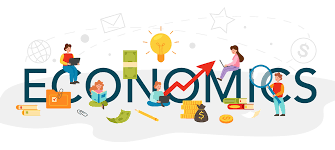SayviethaBT
Member
Understanding Economics: The Foundation of Decision-Making and Development
Economics is often described as the study of how individuals, businesses, and governments make choices about allocating scarce resources to satisfy their unlimited wants and needs. It is a social science that deals with the production, distribution, and consumption of goods and services. From deciding how to spend your pocket money to shaping national fiscal policies, economics plays a crucial role in our everyday lives.
This vast field is typically divided into two main branches: microeconomics and macroeconomics. While microeconomics focuses on individual decision-making units like households and firms, macroeconomics looks at the economy as a whole — including issues like inflation, unemployment, economic growth, and national income.
Why Economics Matters
Economics is not just about money; it is about understanding how people interact with value and make choices. In a world where resources such as time, money, raw materials, and labor are limited, economics helps us understand how best to utilize them. It influences public policy, helps individuals make better decisions, and plays a pivotal role in international relations and global development.
Here are some reasons why economics is important:
- Improved Decision-Making
Understanding basic economic concepts can help individuals and businesses make informed decisions. For instance, knowing how prices are determined, how markets function, or how opportunity costs work can guide smarter financial planning and investments. - Policy Formulation
Governments rely heavily on economic theories and data to formulate fiscal and monetary policies. These policies affect taxation, spending, interest rates, and employment levels. Sound economic planning can lead to stable growth, while poor planning can cause inflation, recession, or inequality. - Resource Allocation
Economics helps allocate resources efficiently. In a market economy, prices act as signals to determine what should be produced, how it should be produced, and for whom. This process helps in minimizing waste and optimizing output.
Basic Economic Concepts
Here are a few key concepts that form the backbone of economic understanding:
- Scarcity and Choice: Resources are limited, which means individuals and societies must make choices about how to use them. Economics studies these choices and the trade-offs involved.
- Opportunity Cost: This is the value of the next best alternative foregone when a choice is made. It’s a fundamental concept that applies to everyday decisions as well as large-scale economic policies.
- Supply and Demand: The interaction between buyers and sellers determines prices and quantities in a market. When demand increases and supply remains the same, prices tend to rise.
- Incentives: People respond to incentives. If prices go up, sellers are incentivized to produce more. If taxes increase, people might reduce spending. Understanding incentives is key to predicting economic behavior.
Microeconomics vs. Macroeconomics
Microeconomics
This branch examines the behavior of individuals and firms. It looks into how consumers make choices, how businesses decide on prices and production, and how resources are distributed among various uses. Some key areas include:
- Consumer behavior
- Production and costs
- Market structures (perfect competition, monopoly, etc.)
- Price mechanisms
- Labor markets
Macroeconomics
Macroeconomics deals with the performance, structure, and behavior of an entire economy. It studies large-scale economic issues such as:
- Gross Domestic Product (GDP)
- Inflation and deflation
- Unemployment rates
- Fiscal and monetary policy
- Economic cycles
The Role of Government in Economics
While free markets allocate resources efficiently, they are not always perfect. Market failures — such as pollution, monopolies, and public goods — require government intervention. Through taxation, subsidies, regulations, and public services, governments influence economic outcomes.
In addition, during times of economic crisis, such as the 2008 financial crash or the COVID-19 pandemic, governments and central banks play a critical role in stabilizing the economy through stimulus packages and interest rate adjustments.
Economics in Everyday Life
We all practice economics every day, even if we don’t realize it. Choosing between studying and going out, saving versus spending, or shopping for the best price — these are all economic decisions.
For example:
- A student deciding whether to pursue a master's degree is essentially evaluating the opportunity cost — the tuition and time versus the potential increase in earnings.
- A business choosing whether to invest in new technology considers factors like expected profits, costs, and market trends.
- Consumers decide whether to buy a product based on its price and their budget constraints.
The Global Perspective
Economics also extends beyond national borders. Global trade, exchange rates, foreign investments, and international cooperation are all influenced by economic principles. International organizations such as the International Monetary Fund (IMF) and the World Bank play key roles in maintaining global economic stability and assisting developing nations.
Understanding international economics is crucial in today’s interconnected world, where a financial crisis in one country can have ripple effects worldwide.
Conclusion
Economics is a dynamic and essential field that impacts every aspect of our lives. From personal budgeting and business strategy to national policy and global trade, economic principles guide decisions that shape our present and future. Learning economics not only helps individuals make better choices but also empowers societies to build more efficient, equitable, and prosperous systems.
Whether you are a student, entrepreneur, policymaker, or an ordinary citizen, a basic understanding of economics equips you with the tools to navigate the complexities of modern life and contribute meaningfully to society.

